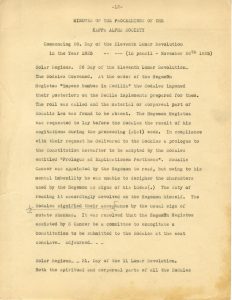The drone attack on Abqaiq, Saudi Arabia threatens oil prices
September 19, 2019
A drone attack on Saturday affected the Abqaiq processing facility and another plant deep in Saudi territory.The damages could cripple a portion of Saudi petroleum exports for days or even. In addition, the attack raised the possibility of further disruptions in Saudi Arabia’s oil production. Experts say that a severe shock to energy markets and the world economy is unlikely.
Saudi Arabia produces 10 percent of the world’s oil supplies. The disruption could decrease Saudi Arabia’s daily oil exports by up to 66 percent taking roughly five percent of global supplies off the market.
President Donald Trump suggested that he could release supplies from the Strategic Petroleum Reserve to calm oil markets. He tweeted on Sunday evening that he had, “authorized the release of oil from the Strategic Petroleum Reserve, if needed.”
Since the reserve was established after the oil embargoes of the 1970s. It has been drawn only occasionally, including during the first Persian Gulf War in 1991, Hurricane Katrina in 2005 and during the Arab Spring in 2011.
The attack could also hurt Saudi Aramco’s planned initial public offering, if international investors doubt Saudi Arabia’s ability to defend its vital energy infrastructure.
“The problem is that the attack is so significant,” said Bill Farren-Price a director at RS Energy Group. “It demonstrates that one of the best regional oil companies has difficulties defending itself from this new style of threat. That theme is going to endure.”
“We do not expect an immediate disruption on global oil trade, since many nations, including the U.S., have ample crude oil in storage,” said Manish Raj, Chief Financial Officer of Velandera Energy Partners. “The Saudis themselves have enough storage to meet their export obligation for the next 60 days. Therefore, we expect no supply-demand imbalance in the near term.”
The main uncertainty is how long will it take for the Saudis to repair the Abqaiq facility, which separates gas from oil from several important oil fields.
“Export volumes will be severely impacted,” Clay Seigle, an analyst at Genscape, a market research firm, said in an email. “The market will be left with a thinner cushion against additional supply disruptions, and traders will bid prices higher as a result.”
The attack adds a new factor to consider for Federal Reserve officials, who have been weighing how a variety of geopolitical risks will influence the economic outlook.
Fed officials will keep an eye on oil prices in the weeks ahead to try to determine how they will affect inflation.
Fed Chairman Jerome Powell said last month officials on the central bank’s rate-setting committee should set policy with an eye toward minimizing the costs of being wrong.
“Because the most important effects of monetary policy are felt with uncertain lags of a year or more, the committee must attempt to look through what may be passing developments and focus on things that seem likely to affect the outlook over time or that pose a material risk of doing so,” he said.






